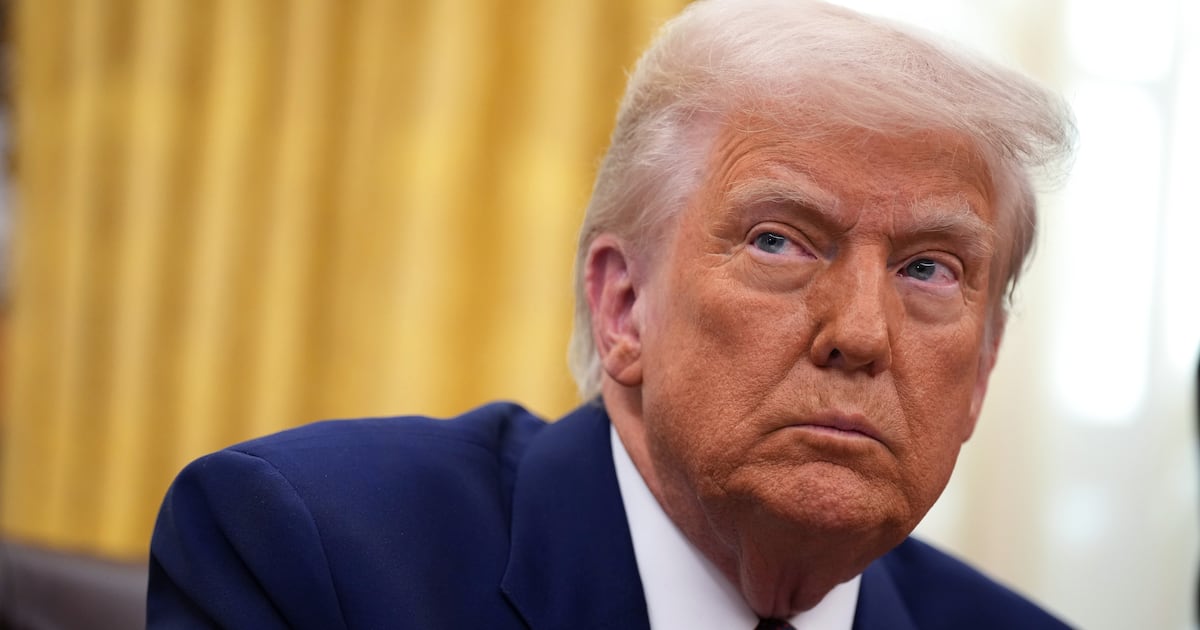This week, Chris Van Hollen, a Democrat who represents the wealthy, liberal D.C. suburbs of Maryland in the House of Representatives, unveiled a grand plan that would tax Wall Street to pay for tax breaks for the middle- and working-classes.
A Democratic colleague in the Senate, the long-time champion of the middle class and Senator from Massachusetts, Elizabeth Warren, blocked an Obama Treasury Department nominee for being too friendly with Wall Street. “It’s time for the Obama administration to loosen the hold that Wall Street banks have over economic policy making,” she wrote about the nominee in an Op-Ed for The Huffington Post titled “Enough is Enough.” “Sure, big banks are important, but running this economy for American families is a lot more important.”
Liberals and left-of-center think tanks heralded the moves as signaling a shift from the smaller-scale policies, like raising the minimum wage or fighting for gender-pay equity, of President Barack Obama. Progressives are such fans of Warren—who has said the minimum wage should be a whopping $22 an hour, more than double the current proposals—that they keep trying to draft her to run for president next year.
But is it really true that these policies will win over voters, or better motivate them to get to the polls on Election Day? A new report from the Pew Research Center for the People and the Press about voter preferences and voter likelihood paints a complicated picture, one that shows that the least financially secure are more alienated from the political process than many might have guessed.
The Pew survey asked people questions about their overall financial security, including whether they’d ever received food stamps or Medicaid and whether they had retirement savings, and then about political preferences.
The most financially secure participants were strongly Republican, which is no surprise. The least financially secure were much more likely to prefer Democratic policies. That included the mythical “white working class,” a group liberals have worried about the Democrats losing because of social-justice issues like race and gender relations. Even though white voters overall were more likely to tilt Republican, support for the GOP declines as we move down the income scale, and the poorest whites were more likely to say they liked Democrats better. Will this finally end the myth that the nation is full of poor whites voting against their economic interests?
The least financially secure group was more likely to say that the government should do more to help the needy, which might indicate support for a proposal like Van Hollen’s. But the bigger problem is that people who were the least financially secure were also the least likely to vote. On top of that, few of them ever wrote to their Congressperson or knew much about the current Congress or the current political field.
This is a big group of voters—at least 20 percent of Americans—who could be swayed by Democratic policies. Yet both parties leave their votes on the table.
Why might lower-income and lower-wealth Americans be so disengaged? The Pew survey didn’t make any claims, but noted that the least financially secure surveyed were less ideologically consistent than the better-off participants, so maybe they don’t strongly identify with a party and that keeps them from feeling moved to vote. Indeed, the least well off were more likely to say they had no preference between the Democratic and Republican candidates in the 2014 elections.
It could also be that, until now, the Democratic Party seemed as friendly to the big banks at times as the Republicans. See above: Warren challenging Obama’s Treasury nominee for being a Wall Streeter.
I think this group doesn’t see Democrats doing much to enhance their economic security. Even these voters know the game is rigged against them and don’t seen many politicians of either party rising to be their champion. Democrats seem ready to cede lots of ground on policies that will hit Americans with the lowest incomes the hardest, like raising the Social Security retirement age and cutting benefits.
The lives of low-income, financially insecure Americans are busy, insecure ones. They are less likely to be well educated and more likely to have a disability that keeps them from working full time. They are more likely to be women who have never been married, which means many are overwhelmed single mothers. The least well-off financially likely includes men who have spent some time in the criminal justice system, which means they are literally disenfranchised or believe they cannot vote even if they live in a state where they could.
And it would take an entire book to investigate the ways in which voter identification laws might complicate the process of voting for the people who are least likely to have an official form of identification that matches their current address or a current driver’s license. It takes money and time to keep identification information current, and who has that? More subtly, these rules might dissuade them from trying to vote in the first place.
Most of the proposals even the Democrats are talking about, from Van Hollen’s redistributive Wall Street tax to Obama’s recent proposal for free community colleges, will help the middle class the most. That’s fine, the middle class need help. Helping them might also reward Democrats with more of their votes. But the least financially secure families, the ones who are getting food stamps and working multiple jobs, are probably going to need a little more than the promise of tax credits to lure them to the voting booth for any candidate.
If the Democrats could motivate even a fraction of them to get to the polls, that plus coming demographic changes would ensure a more progressive future for the country, at least in the near term. What’s more, these voters who actually vote may be able to hold the politicians they elect accountable, and force them to make the policy changes that really would finally rein in Wall Street and help the rest of us make ends meet.





